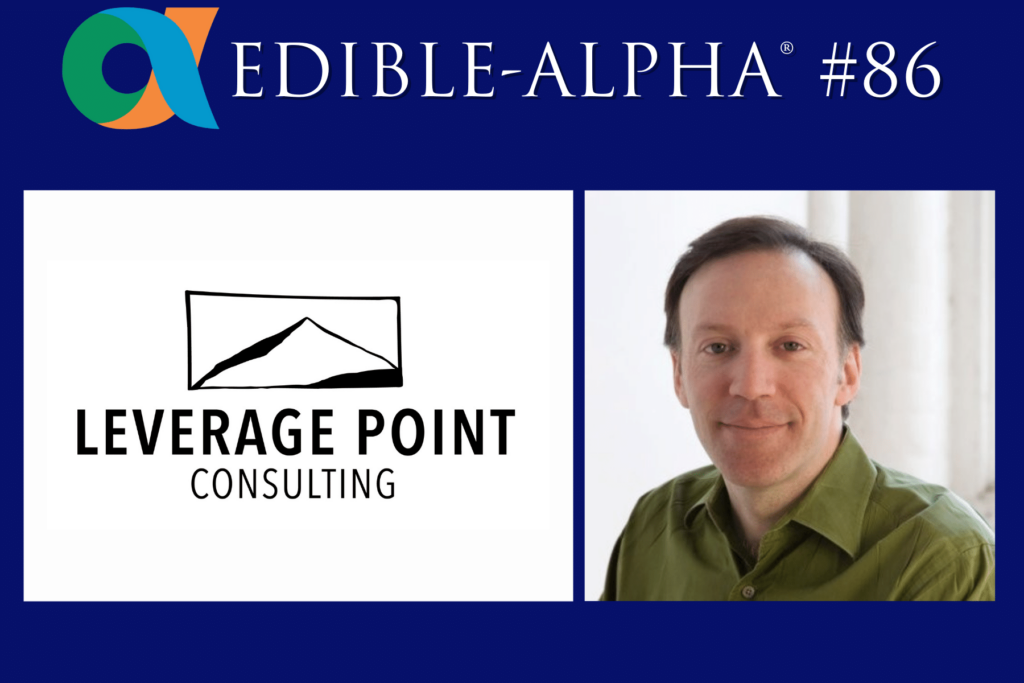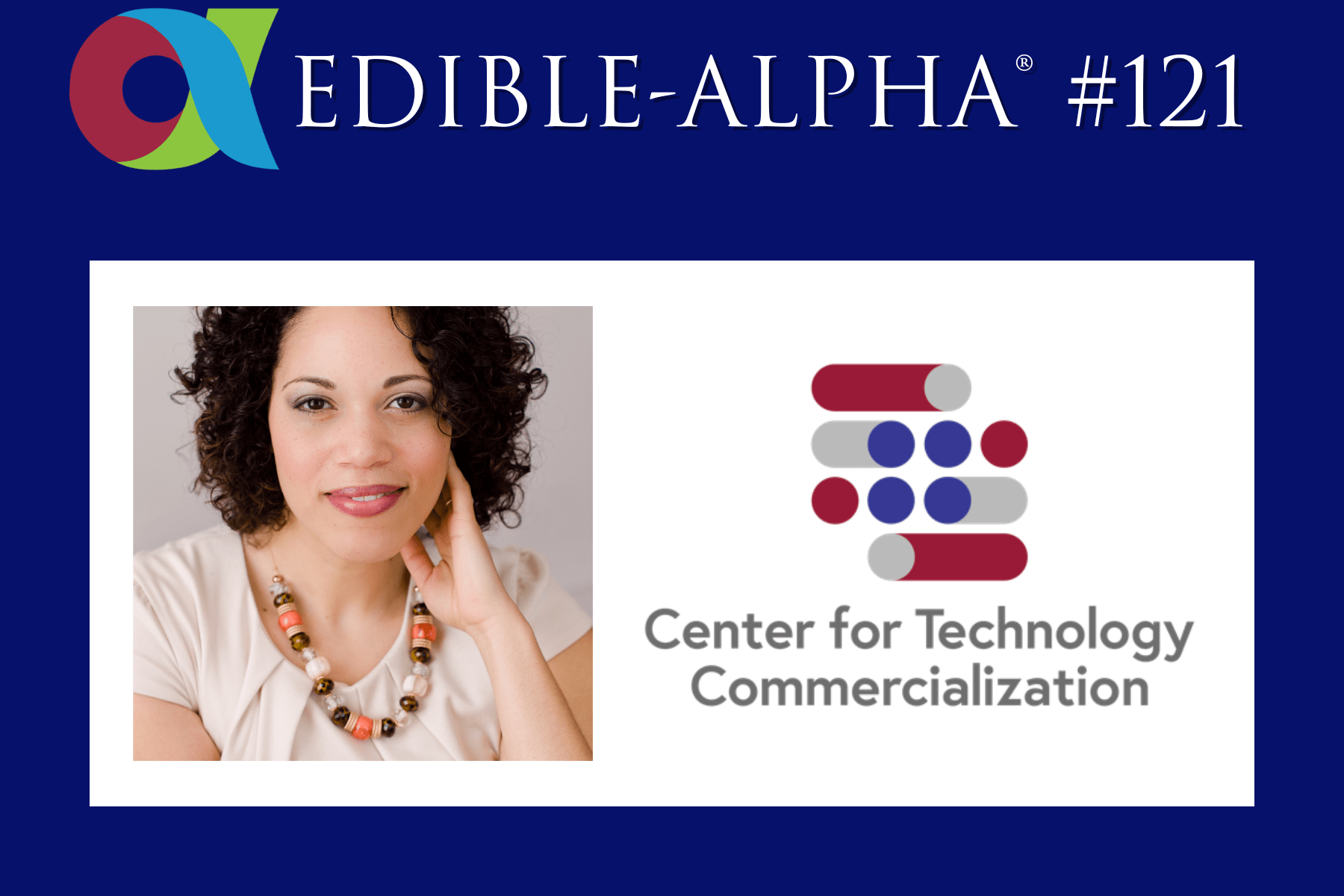Subscribe: Apple Podcasts | Spotify | Amazon Music | iHeartRadio | RSS | More
In Edible-Alpha® podcast #86, Tera sits down with Eric DeLuca, founder of Leverage Point Consulting, a market development firm focused on land-based, sustainable and socially responsible enterprises. Eric also serves as one of the Food Finance Institute’s Food Systems Expert-in-Residence, instructing the Scenario Planning immersion training. With vast experience in organizational and food-systems development, strategy and finance, he helps food and farm businesses strategize and secure funding to scale.
One of Eric’s areas of expertise is scenario planning, a proven method by which companies map out multiple potential futures and craft action plans for each. The idea is that by considering and strategizing around various outcomes, businesses will be better prepared to navigate “unforeseen” events, such as a drastic decline in market demand, a devastating drought, a significant capital loss or a global pandemic.
After sharing the fascinating history of scenario planning, Eric delved deeper into what it is, first by saying what it is not: a crystal ball. Rather than predicting the future, it involves examining all plausible futures with a pragmatic, unbiased eye and then telling a story around them. While it’s tempting to focus on scenarios a company wants to happen, it’s critical to consider all scenarios that could happen. This involves ditching the rose-colored glasses, testing long-held assumptions and viewpoints, and really thinking through outcomes both positive and negative.
Scenario planning would behoove most any business at any time, but the COVID-19 crisis has made it especially crucial. Eric and Tera met in 2018, when he completed FFI’s Value-added Food & Farm Business Consultant Certification Training. They further reconnected through the Edible-Alpha® Consultant Huddles last year, which led them to team up to develop a Scenario Planning training program to help scaling food and farm businesses in this time of crazy uncertainty.
In discussing the pilot cohort they led, they remarked how beneficial it was for the participants to step away from their day-to-day to strategize in this way. Entrepreneurs spend so much time working in their business—especially these days, with the pandemic still throwing wrenches—that they struggle to find time to work on their business. But in the boot camp environment, each participant was able to move from the tactical thinking they use to run their companies and put out fires every day to thinking more strategically. This shift then greatly impacted how they described their business models and brands.
Next, Eric shared his recent experiences working with advisory boards and funds and how their priorities have shifted in response to the pandemic, recent social justice reckoning and intensifying threats of climate change. He said there is now more emphasis on diversity, inclusion and ensuring that funding and business assistance opportunities feel accessible to all and truly match the needs of potential recipients.
Listen to the podcast to hear the full discussion on scenario planning. For more info on FFI’s Scenario Planning program and to be considered for an upcoming cohort, click here.

